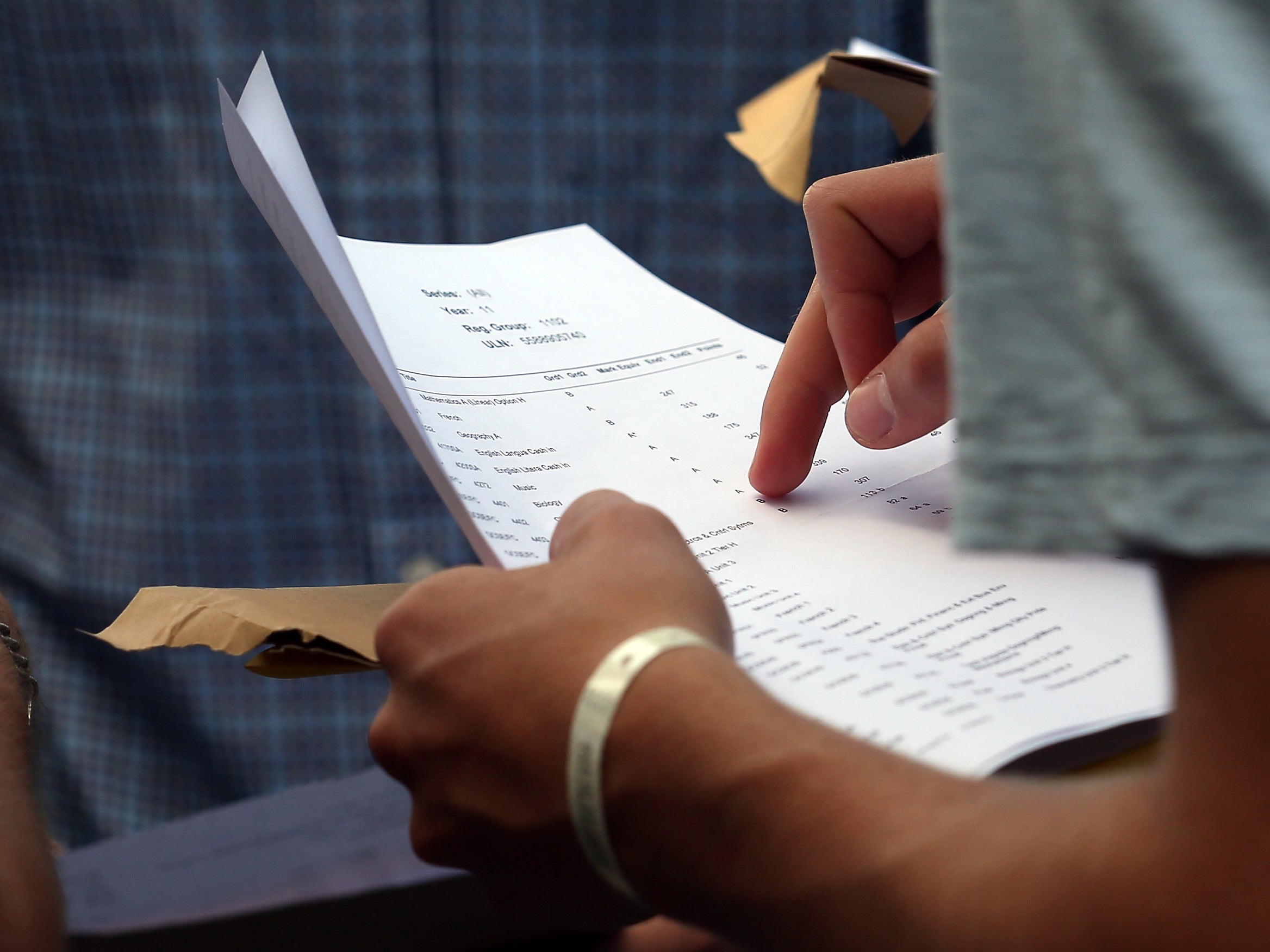Schools should be 'fined' if pupils fail get C at English and maths GCSEs, think-tank says
The cash would then be passed on to further education colleges

Your support helps us to tell the story
From reproductive rights to climate change to Big Tech, The Independent is on the ground when the story is developing. Whether it's investigating the financials of Elon Musk's pro-Trump PAC or producing our latest documentary, 'The A Word', which shines a light on the American women fighting for reproductive rights, we know how important it is to parse out the facts from the messaging.
At such a critical moment in US history, we need reporters on the ground. Your donation allows us to keep sending journalists to speak to both sides of the story.
The Independent is trusted by Americans across the entire political spectrum. And unlike many other quality news outlets, we choose not to lock Americans out of our reporting and analysis with paywalls. We believe quality journalism should be available to everyone, paid for by those who can afford it.
Your support makes all the difference.Schools should be “fined” if their pupils fail to get at least a C grade in English and maths at GCSE, an influential think-tank says.
The cash would then be passed on to further education colleges to help them teach the thousands of pupils who have to sit those exam again under new government legislation.
The “fine” or “resit levy” is floated in a report by the influential Conservative-leaning think-tank Policy Exchange which was founded by former Education Secretary Michael Gove.
“Hundreds of thousands of students who received their GCSEs last week will have to retake English and maths and most of these students will attend a further education college,” says the report.
The colleges are also not covered by the Government’s pledge to maintain education spending as it only applies to five to 16-year-olds.
“It is unfair for some schools to pass the buck on to FE colleges who are already facing extreme funding pressures to fix a problem they have not caused themselves,” said Natasha Porter, author of the report. “To recognise the additional burden on FE colleges and shoulder more responsibility, schools should cough up and pay a resit levy.”
The report says that pupils whose standards have improved since they enrolled at a school at age 11 should be exempted from the levy - plus those who have only been at the school for a short time.
“The sheer volume of students being required to retake qualifications in further education colleges makes this a much bigger challenge for them than other institutions,” says the report.
GCSE figures published last Thursday showed a 22.9 per cent rise in the number of 17-year-oldsa and over sitting the exam.
“Indeed early evidence suggests that this is precisely what is happening,” the report continues, “with external venues needing to be hired [to teach the students], other classes cancelled to make room for exams and temporary staff drafted in to invigilate exams.”
However. Brian Lightman, general secretary of the Association of School and College Leaders, said: “The idea of a resit levy on the secondary schools where these students first took their GCSEs would be an own goal.
“Schools are already facing real-term cuts in their budgets and unprecedented difficulties in recruiting staff, particularly maths teachers. A resit levy would potentially worsen this situation.”
Christine Blower, general secretary of the National Union of Teachers, added: “The Policy Exchange proposal would simply penalise secondary schools without improving matters substantially for FE colleges.
“The answer is not to rob Peter to pay Paul but to fund all schools and colleges properly.”
The Association for Colleges, which represents FE colleges - said - whilst the levy “would bring welcome additional funding” - it would be easier “if the Government recognised the new challenge” in the national funding system.
However, the Department for Education said it was already giving colleges £480 extra for every pupil without a C grade by age 16 that was retaking maths or English GCSEs.
A spokesman for the DfE added: "Post-16 schools and colleges are making very good progress in ensuring all young people have this opportunity [to get at least a C grade in English and maths]."
Join our commenting forum
Join thought-provoking conversations, follow other Independent readers and see their replies
Comments